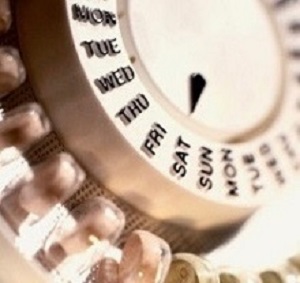 The World Health Organisation (WHO) has issued an updated guidance statement on its recommendations for the use of hormonal contraception by women at high risk of HIV.
The World Health Organisation (WHO) has issued an updated guidance statement on its recommendations for the use of hormonal contraception by women at high risk of HIV.
The update changes the WHO classification of long-acting injectable contraceptives like DMPA (also known as Depo) and NET-EN. WHO states “there continues to be evidence of a possible increased risk of HIV among progestogen-only injectable users.” Based on this possibility and women's right to informed choice, the WHO has changed the grade for both methods from "use without restriction" to "benefits outweigh theoretical or proven risks".
The new guidance is clear that the recommendations are based on women’s right to informed choice in health and that women should have information about this possibility as well as full access to the method of their choice, regardless of their HIV risk.
The WHO reviewed the available evidence and graded the information as “low-to-moderate” quality. They concluded that “there continues to be evidence of a possible increased risk of HIV among progestogenonly injectable users” and that “uncertainty exists about whether this is due to methodologic issues with the evidence or a real biologic effect”.
The WHO recommends that long-acting progestogen-only injectables (DMPA and NET-EN) should remain accessible to women at high risk of HIV, “because the advantages of these methods generally outweigh the possible increased risk of HIV acquisition.” However, women at high risk of HIV who choose to use these methods should be counselled about the possible increased risk of HIV and how to reduce this risk.
The WHO recommendations are strongly rooted in women’s right to accurate information enabling them to make informed choices about their contraceptive methods. Women should have full access to the methods of their choice, regardless of their HIV risk. All women using contraceptive methods should be advised of ways to reduce their risk of acquiring HIV and other STIs. The WHO guidance highlights the continued importance of randomised clinical trials to clarify whether or not there is a causal relationship between use of progestogen injectables and an increased risk of acquiring HIV.
The ECHO Study (Evidence for Contraceptive Options and HIV Outcomes), launched in December 2015, is the first randomised clinical trial designed to assess the risk of HIV acquisition by women using three contraceptive methods: the progestogen injection DMPA, the levonorgestrel implant Jadelle and the non-hormonal copper IUD. The study will also evaluate the performance of these methods in relation to pregnancy rates, side effects and women’s patterns of use.
The study has already enrolled over half of the intended 7,800 voluntary participants at 12 research sites in Kenya, South Africa, Swaziland and Zambia and is expected to yield results in early 2019. The ECHO Study will contribute important evidence to family planning programmes and policy makers on DMPA, the Jadelle implant and the copper IUD. By filling important information gaps, ECHO will provide more information to policymakers, health care providers and women users about these three contraceptive methods.
Following the release of WHO’s new guidance, the independent Data Safety and Monitoring Board (DSMB) that oversees the ECHO study, reviewed study progress focusing on safety and data quality, as well as considering the implications of the WHO guidance for the study. The DSMB recommended the continuation of the ECHO study.
As the study goes forward, the ECHO research team will ensure that current participants receive an information sheet explaining the updated WHO guidance. All recruitment and informational material, as well as counselling messages for current participants, will be similarly updated. The revised study protocol and materials will be reviewed by the ethical review committees overseeing ECHO.
The ECHO study is committed to conducting the trial to the highest possible standards, including information on PrEP as part of the prevention package where appropriate, in order to produce reliable, useful findings. In this way, ECHO will answer reproductive health questions that are of critical importance to millions of women.
[link url="http://www.avac.org/blog/who-updates-guidance-hormonal-contraception-and-hiv"]AVAC material[/link]
[link url="http://echo-consortium.com/wp-content/uploads/2017/03/ECHO-MC-on-WHO-contraceptive-guidance-3-Mar-2017-2.pdf"]ECHO material[/link]
[link url="http://apps.who.int/iris/bitstream/10665/254662/1/WHO-RHR-17.04-eng.pdf?ua=1"]WHO Guidance statement[/link]
[link url="http://www.who.int/reproductivehealth/faqs-hormonal-contraceptive-hiv/en/"]WHO FAQs[/link]
